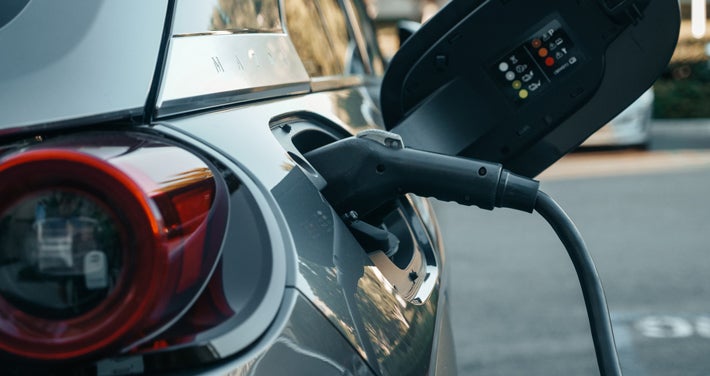When evaluating whether an electric vehicle (EV) is a good fit for your lifestyle, there are a number of factors to consider. As gasoline prices increase, it may be tempting to make the switch to electric, but there’s a lot more to calculating the overall cost of EV ownership. To that end, we’ve compiled a list of considerations to help you make an informed decision.
Up-Front Costs
Purchase Price
According to Kelley Blue Book, the average EV purchase price in June 2023 was approximately $5,000 higher than a similarly equipped gasoline-powered vehicle. However, you may be entitled to state, municipal, or other incentives to offset the purchase price.
Equipment
Most EVs come with a Level 1 charger which delivers approximately five miles of range per hour of charge and is great as a backup. You can also choose to install a Level 2 charger at your home which will deliver approximately 25 miles of range per hour of charge. You can expect to pay between $200 and $1,000 for a Level 2 charging unit, plus an additional $800 to $1,300 for installation, depending on whether you have a dedicated 100-amp 208-240V circuit available. If you need to upgrade your service panel to accommodate the charger, your overall installation costs will be higher.
Day-to-Day Costs
Maintenance Costs
EVs have far fewer moving parts than internal combustion engine (ICE) vehicles – no spark plugs, no catalytic converter, and no need for oil changes. Plus, EVs have a regenerative braking system, which recovers energy that would otherwise be lost and saves wear and tear on the mechanical brakes. Overall, Consumer Reports found that EV owners can save approximately $4,600 in maintenance costs over the life of the vehicle compared with a gasoline-powered car.
Charging at Home
When it comes to charging at home, it’s a bit like comparing apples to oranges when it comes to figuring out the impact on your monthly electric bill. Although there has historically been far less fluctuation in electricity rates than gasoline prices, electric rates can be impacted by changes in demand, the cost of the fuel to generate the electricity, and other factors. There are many variables, but one way to compare estimated costs is through an online calculator tool. The US Department of Energy offers a Vehicle Cost Calculator that lets users customize the results based on vehicle and driving habits.
According to FuelEconomy.gov, gas-powered cars convert just 12 to 30% of the energy from gas to power the car, while EVs convert 77% of the electrical energy from the grid.
Public Charging Stations
The public charging infrastructure is a veritable jungle of maps, apps, and fee structures. Public chargers are privately owned, which means they’re free to charge whatever the market will bear. One station might charge at a slower speed and charge by the kWh, while nearby, a fast charger might bill per minute. Charging speed at public charging stations is subject to the limitations of both the vehicle and the device itself. Note that some stations even charge for idle time – that is, the time your car remains connected to the charger after charging is complete.
Most charging stations accept credit cards, some allow Apple Pay and other mobile device payment methods, but nearly all prefer customers to download their app and set up an account.
Electric vehicle ownership is not without its quirks, but with a little research and experience, EV owners will quickly adapt to this evolving technology. The money you could save is just the tip of the iceberg, and the planet will thank you.
Key Takeaways
- Most EV owners do 80% of their charging at home.
- Tesla far and away leads the EV industry when it comes to EV charging infrastructure.



